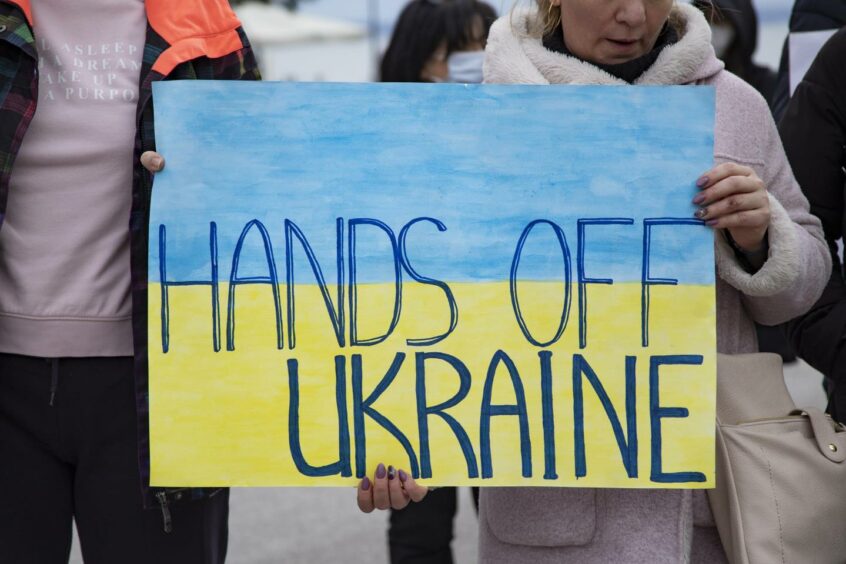
The madness in Ukraine has dramatically fast-forwarded issues that were already in the making. Soaring energy prices, over-reliance on imported gas, storage which is essential to facilitate the growth of renewables … the list goes on and on.
Now reality is biting hard. True, EU countries which are more dependent on Russian gas are in the front line. Twenty years ago, the Labour government took steps to facilitate gas imports from Norway. That was a very good move which I am proud to have helped facilitate.
However it does us only limited good, certainly on the critical issue of price. There has never in recent times been such a massive threat to people’s ability to pay their bills – not because they won’t but because they can’t. Government intervention on a far larger scale than is currently mooted will be necessary.
On the continent, the suspension of Nordstream 2 creates massive problems for Germany in particular. I should acknowledge that I previously wrote here in support of that project so was that wrong? I don’t think so. It should have strengthened links between Russia and Europe to mutual advantage. The utter irrationality of what is going on in Ukraine means that Germany will not get the gas – but Russia will not get the money any time this side of Putin’s departure.
Now, even the German Greens, who created much of that gas dependence in the first place, are “reconsidering” their veto on nuclear power. Maybe our own mini-me Greens, ensconced in the government of Scotland, will eventually get round to the same conclusion though most of that damage is already done. With common sense, we could have been in the same position of France – a clean energy world-leader in zero carbon nuclear and renewables.
In an interesting series of nine tweets as the Ukraine crisis unfolded, the business secretary, Kwasi Kwarteng, reaffirmed the commitment to net zero ambitions while insisting that gas dependency must be reduced. I welcome the repentant sinner and it was an unorthodox way of establishing a new energy strategy. Usually, it takes a White Paper rather than nine tweets.
In most respects, he is right. We should never have been so dependent on gas in the first place and that happened in the full knowledge that most of the gas would be imported. While Mr Kwarteng stressed the relative lack of dependence on Russian gas, he neglected to mention the UK’s inexplicable acquiescing in getting rid of our major gas storage facility in 2017. We are not as secure as he implied.
Anyway, he is right to say that we should reduce gas dependence. But how quickly can that be done? I suspect we will just about get through on security of supply over the next couple of years but without government intervention, the price to be paid by households and industry will be truly alarming.
Of course, as Mr Kwarteng tweeted, we should accelerate the development of renewables, though the parallel need for storage to compensate for their intermittency remains a largely neglected subect. Why is that so? Because the unspoken assumption has been that gas would always provide when the wind did not blow. That now needs to change – and fast.
Please read: thread on energy security 🧵
The North Sea is our single largest source of gas, with the bulk of our imports coming from reliable Norway.
Unlike Europe, we're not reliant on Russian gas.
But like others, we are vulnerable to high prices set by markets.
(1/9)— Kwasi Kwarteng (@KwasiKwarteng) February 28, 2022
Mr Kwarteng is also right to factor in the revival of nuclear power. If even the German Greens can contemplate it then surely our own pious politicians can take a fresh look at the rational case for its contribution. The problem is that even with a supportive political environment, new nuclear takes a long time to build so it is not going to come to our aid any time soon.
The same is true of the Cambo field or any other new developments in the North Sea. It was nonsensical in the first place for followers of fashionable opinion like Nicola Sturgeon to put the black spot on the North Sea when there is no global strategy to veto new developments. That is a pre-existing argument which stands on its own merit.
Cambo is not going to save us from the short-term shocks but should be part of a longer-term self-sufficiency strategy. It is asserted as if it was an immovable truth that most North Sea production is exported but should part of the North Sea pact going forwards not be that the UK would have first claim on our own production?
None of these actions is going to reverse the strategic mistakes made over the past 30 year or the complacent mantra I heard so often that there will “always be plenty gas in the world”. The questions that should have been asked much more critically are: ”Where and at what cost?”
There is no doubt that willingness to ignore Russian abuses and menaces over the past decade have been closely linked to UK commercial interests in the energy industry. These are now largely broken and will not be restored any time soon. The mix of energy-related wealth and political influence has been toxic.
Such is the brutality of the Russian attack on Ukraine that, this time, nothing is going to revert to where it was before. The implications of that for the energy sector are perhaps greater than for any other. While the fall-out remains unpredictable, the one certainty is that the inconveniences faced by western Europe will be as nothing to the hell being endured in Ukraine.
Brian Wilson is a former UK energy minister
Recommended for you
